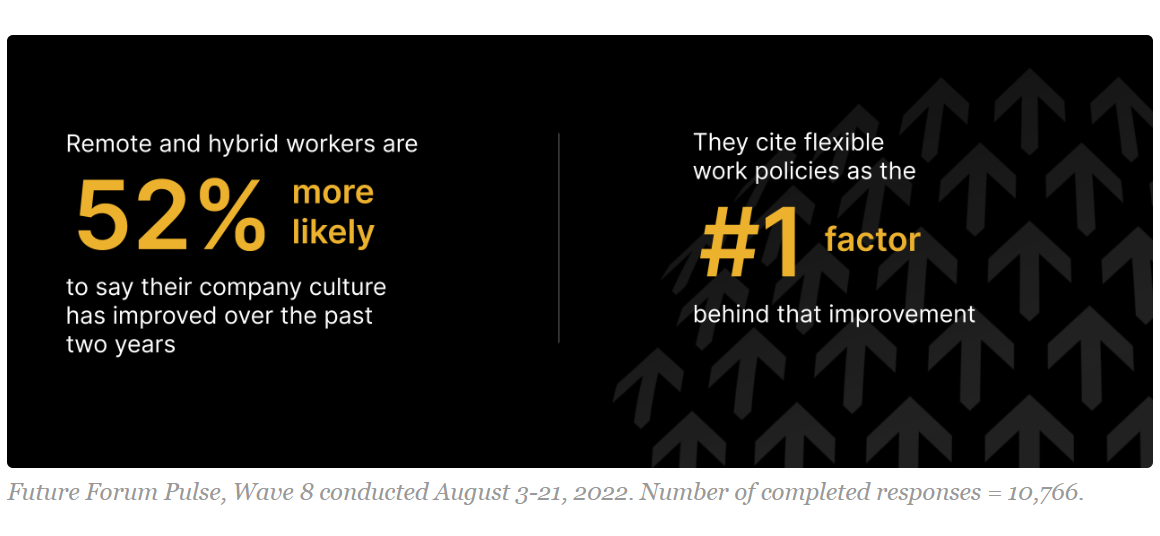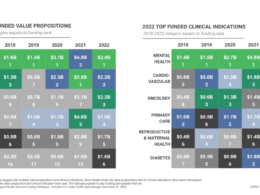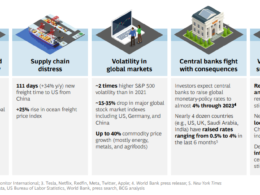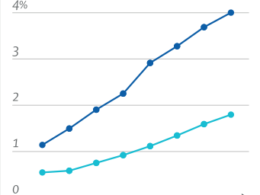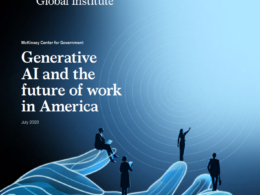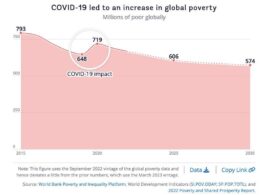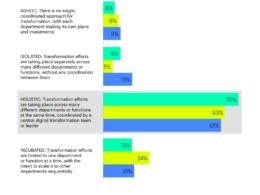Health Tranformation Institute (HTI)
Joaquim Cardoso MSc*
Chief Researcher and Editor
November 6, 2022
(*MSc from London Business School — MIT Sloan Programme)
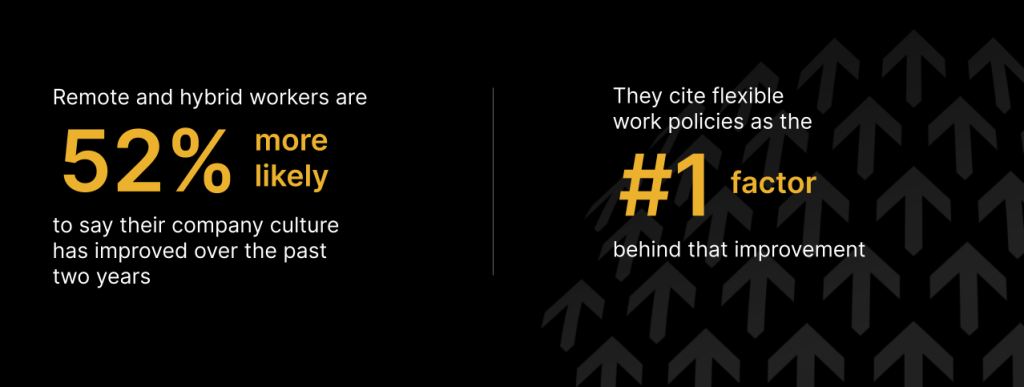
Why ‘returning’ is the wrong direction for a productive work environment
Executive experience is not all-employee experience
Future Forum
October 2022
Future Forum data shows that workforce policy planning is largely happening at the executive level …
… with 60% of executives surveyed saying they’re designing their companies’ policies with little to no direct input from employees.
This means they’re deciding these policies based primarily on the perspectives of people who share the same experiences and stressors as them.
Future Forum data shows that workforce policy planning is largely happening at the executive level … This means they’re deciding these policies based primarily on the perspectives of people who share the same experiences and stressors as them.
Executives who fall prey to confirmation bias and let their own declining experience guide their decision-making around workforce policies risk alienating employees and losing the battle for talent.
While sentiment and experience scores have dropped for executives in the past year during the broad adoption of flexible work, they’ve remained steady across most other groups and have strengthened for a few key groups:
- Individual contributors have seen gains, including
– 6% year-over-year gains for productivity,
– 11% gains for work-life balance,
– 12% more overall satisfaction with work, and
– 25% lower stress and anxiety.
- In the U.S., Black employees also made significant gains, and are now reporting the highest scores of any racial/ethnic group across many measures, including workplace flexibility, ability to focus, sense of belonging, and overall workplace satisfaction.
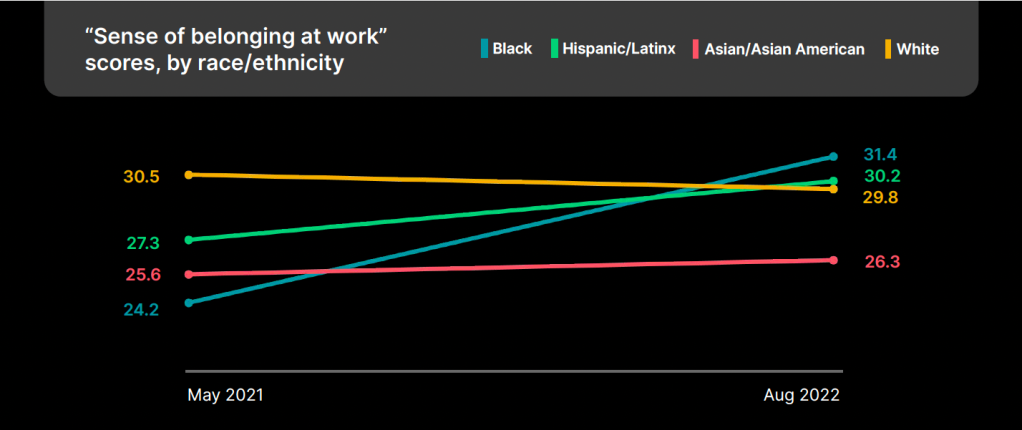
“The fact that Black knowledge workers’ sentiment and experience scores are up is something to celebrate — but it’s also something that leaders can’t take for granted,” says Tina Gilbert, Managing Director at Management Leadership for Tomorrow (MLT), a founding partner of Future Forum.
“Increased energy, focus, and investment in DEI initiatives over the past few years coupled with the rise of workplace flexibility have made a positive difference for Black employees.
But to ensure these gains are not just a one-time occurrence, leaders must continue to engage with their Black employees and learn about their experiences both in and out of the workplace.”
Concerns around degrading connection and culture in flexible environments are overblown
Many leaders also believe that fostering connections among employees and building organizational culture can only be done in person, in an office.
Twenty-five percent of executives surveyed cited “team culture is negatively impacted” as a number one concern about offering employees more flexibility.
And compared with non-executives, executives put more than two times higher priority on “facetime with management” and are more likely to value in-person meetings.
Many leaders also believe that fostering connections among employees and building organizational culture can only be done in person, in an office.
Despite concerns that flexible work damages employees’ sense of connection, new data shows that not to be true.
Remote and hybrid workers are equally or more likely to feel connected to their immediate teams as fully in-office workers.
And across the board, they are more likely to feel connected to their direct manager and their company’s values.
Despite concerns that flexible work damages employees’ sense of connection, new data shows that not to be true.

Remote and hybrid workers were 52% more likely to say their company culture has improved over the past two years compared with fully in-person workers — and they cite flexible remote work policies as the primary reason their culture is changing for the better.
It’s worth noting that transparency is another key enabler of connection and healthy work culture.
People who believe their leaders are transparent feel nearly four times as high a sense of belonging with their teams and report more than six times as high satisfaction with their work environment.
“I often hear leaders say that working away from the office makes it harder to connect and collaborate and eats away at company culture, and about 25% of executives surveyed listed that as a top concern in our survey.
But this might be an issue of executives believing that what worked for them in the past is what works best for everyone, and the data shows that executives and non-executives have very different experiences.” —
Sheela Subramanian, Co-Founder of Future Forum
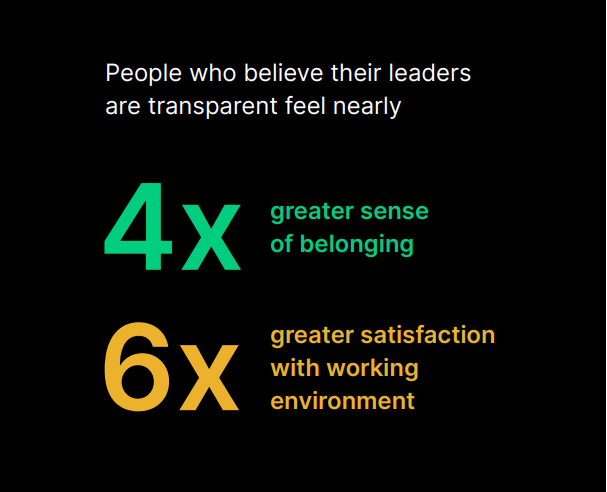
Embracing flexibility increases productivity
Executives cite declining productivity as their second top-most concern when it comes to flexible work.
But this is another case where the data runs counter to conventional wisdom: flexible work is associated with increased productivity and focus, not less.
Executives cite declining productivity as their second top-most concern when it comes to flexible work.
But this is another case where the data runs counter to conventional wisdom
Future Forum data shows that workers with location flexibility report 4% higher productivity scores than fully in-office workers, a difference that across a workforce can add up to material improvements to the bottom line.
And schedule flexibility leads to even greater benefits.
- Workers who have full schedule flexibility report 29% higher productivity than workers with no ability to shift their schedule.
- They also report 53% greater ability to focus.
Executive miscalculations about worker productivity could have dire consequences.
Pulse data finds that the Great Resignation shows no signs of slowing down.
The number of workers who say they are likely to look for a new job in the next year rose from 55% to 57% this quarter.
Women, working mothers, and people of color are most likely to say they would like to change jobs.
Women, working mothers, and people of color are most likely to say they would like to change jobs.
Employees want more choice and control over how, when, and where they work.
If employers respond by measuring worker performance and productivity by how many hours employees spend in the office, they’re likely to drive away top talent.
Employees want more choice and control over how, when, and where they work. If employers respond by measuring worker performance and productivity by how many hours employees spend in the office, they’re likely to drive away top talent.
Names mentioned:
Slack; management leadership for tomorrow (mlt); bcg; millerknoll
Brian Elliott, the Executive Leader of Future Forum
Ryan Anderson, the Vice President of Global Research and Insights at MillerKnoll
Sheela Subramanian, Co-Founder of Future Forum
Tina Gilbert, Managing Director at Management Leadership for Tomorrow (MLT),
How to cite this report
Fall 2022 Future Forum Pulse, https://futureforum.com/research/pulse -report-fall-2022-executives-feel-strain -leading-in-new-normal/




